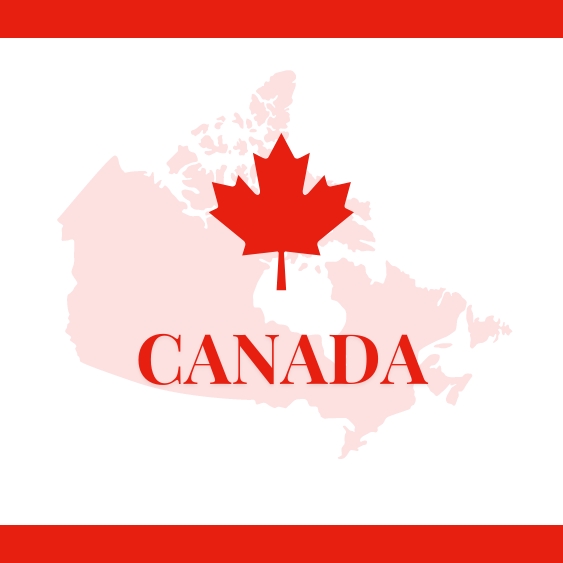
Need More Information
Need More Information
Hotline
+1 (873) 288-6006

Canada
Study in Canada
Study in Canada
Want to study in Canada? We answer all your top questions, including how much it costs to study in Canada, which courses are available and how you can use your Canadian study permit as a pathway to obtain Canadian permanent residence.
Know More
Firstly, Canada’s reputation as a safe and stable country is a significant factor.
Secondly, the high-quality education system. Known for its excellence and diversity, the canadian education is a major draw. Lastly, Canada’s inclusive and tolerant society plays a pivotal role in the decision-making process.
Furthermore, international students are looking toward the future while in Canada. An impressive 72.5% of them plan to apply for a post-graduate work permit, which allows them to gain valuable work experience. Additionally, 60% of these students aspire to make Canada their permanent home, highlighting the country’s attractiveness as a place not only for studying but also for building a promising future. With its welcoming environment, outstanding education system, and diverse opportunities, Canada’s appeal to foreign students has never been stronger.
Certain documents are necessary for the application process. Below is a list of documents that may be requested of you.
Acceptance Letter: A letter sent by the schools or Canadian universities confirming your acceptance into your program of study.
Proof of Financial Support: Proof that you have money to support yourself and any family members coming with you. You must show that you can cover your tuition fees as well as your cost of living (accommodation, food, etc.) for your first year in Canada.
Identity documents: Birth certificate, marriage certificate and passport.
Processing times for study permits vary greatly. The amount of time it takes depends on your country of residence.
The shortest processing time is 1-2 weeks, but some applicants can expect to wait as long as 16 weeks. Processing times depend on the volume of applications received. If you’re applying close to the beginning of Canada’s academic year you may experience delays.
Want faster processing times? Find out if you are eligible for the Study Direct Stream (SDS).
There are certain terms and conditions attached to a Canadian study permit. You must respect these conditions in order to retain all the benefits of your study experience.
- You must be enrolled at a designated learning institution (DLI)
- You must be enrolled as a part-time student, or a full-time student if studying in Quebec
- You must not take any authorized leaves longer than 150 days from your program of study
There are plenty of scholarship opportunities for international students who want to study in Canada.
The opportunities available to you will depend on your field of study or research and your country of origin.
You can find more information about scholarships that may be available to you by using this database.
A designated learning institution (DLI) is any school that is allowed to admit international students.
All primary and secondary schools in Canada are DLIs and can admit students from foreign countries.
Not all post-secondary schools are DLIs, so you must check the Canadian government’s list of DLIs before applying.
Canada has a reputation for providing accessible, quality education for international students. To understand which program is right for you, first you must understand Canada’s levels of study.
Any educational program beyond the twelfth grade in Canada is considered post-secondary education. There are a few different types of post-secondary education, each with a different purpose.
Certain programs may have specific admissions requirements.
Our mandate is to ensure that you meet the basic admissions requirements for any program that you are applying for
To study at a Canadian school you will need to be proficient in English or French.
Canadian post-secondary schools set their own conditions for language skills of international students. Language skill requirements vary from one school to the next.
While preparing your application, you should research the specific requirements for your program. Some schools even allow you to complete English courses after you begin your studies.
Some international students do not need to provide proof of their language skills. If you are from an English-speaking country or have studied in English, then you may not have to take the IELTS.
Each school set its own language requirements. It is important to check the specific requirements of the school where you want to apply.
Your letter of intent is a critical part of your study permit application. It should explain your plans to study in the country and your goals. You should acknowledge the conditions of being a Canadian study permit-holder.
The purpose of the letter of intent is to assure the Canadian government that you will respect the conditions of your permit. You must agree to leave the country once your permit has expired.
Our international student program offers guidance on writing your best letter of intent!
Yes! Another perk to studying in Canada is that international students have the right to work. This helps offset the cost of tuition and living expenses.
International students in Canada can work part-time (up to 20 hours per week) during school terms. During scheduled breaks like summer vacation, they may work full-time.
Most students don’t need a work permit to work while they study, whether their job is on campus or off campus. Your study permit will state whether you’re allowed to work off campus.
If your program of study includes work experience, you may be able to work more than 20 hours during the semester. This will be indicated in your letter of acceptance. If the government approves this condition, you will be granted both a work permit and a study permit. This work permit will allow you to work on campus only.
International students who are married or have kids may wish to bring their family with them.
Canadian visa officers will consider study permit applications which include accompanying family members. You should note that including family members on a study permit application may influence the visa officer’s decision.
If you are approved as a family, your spouse will be able to work full time while in Canada. Any accompanying children will be able to study for free.
If your family does accompany you, your spouse will be eligible for an open work permit, authorizing them to work full-time in Canada while you are studying.
Canada makes it easy for international students to become permanent residents if they want to remain in the country.
The Post-Graduate Work Permit allows international students to stay in Canada and work for up to three years after graduating. After working in Canada for one year, international graduates may be eligible to apply for permanent residency.
To apply for a PGWP, you need to prove that you have respected all the conditions of your study permit. Studying must have been your primary activity during your time in Canada.
A PGWP is typically granted for the same duration as your studies in Canada.
